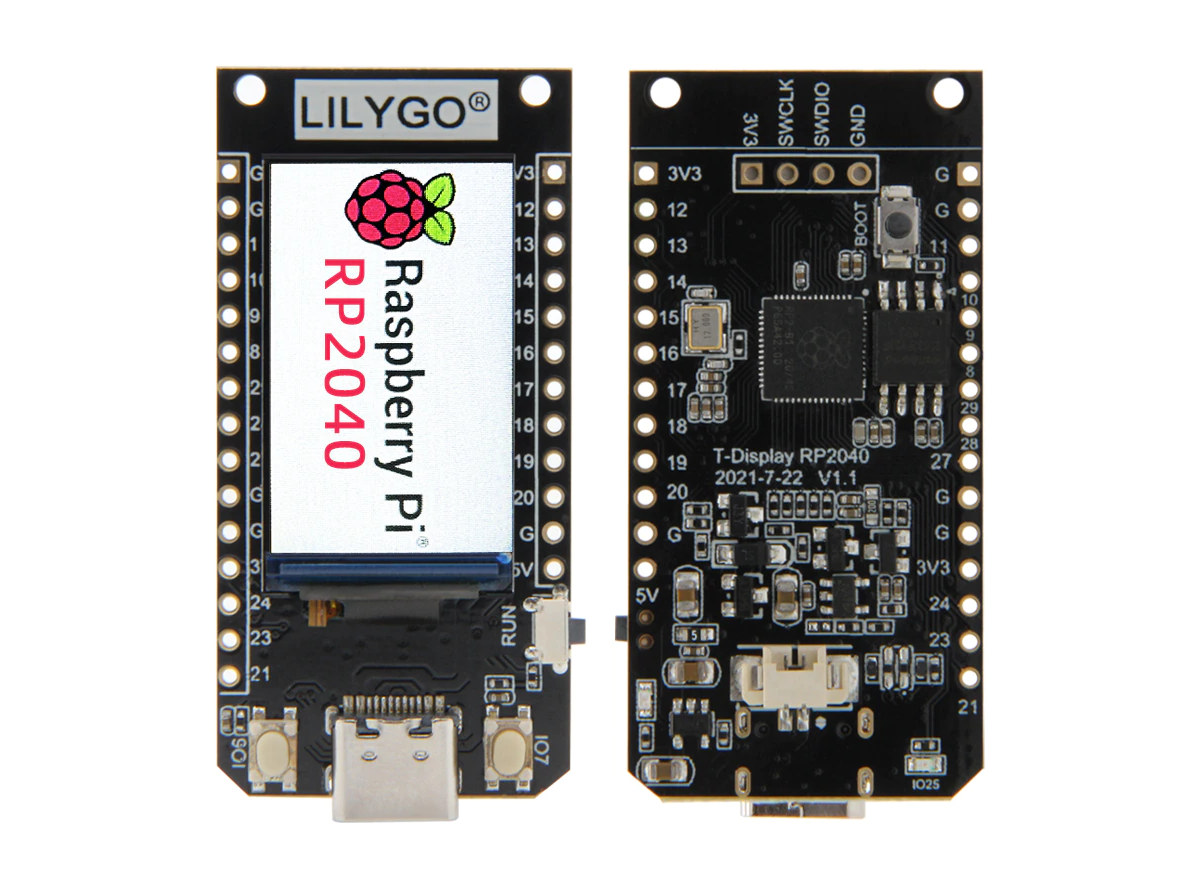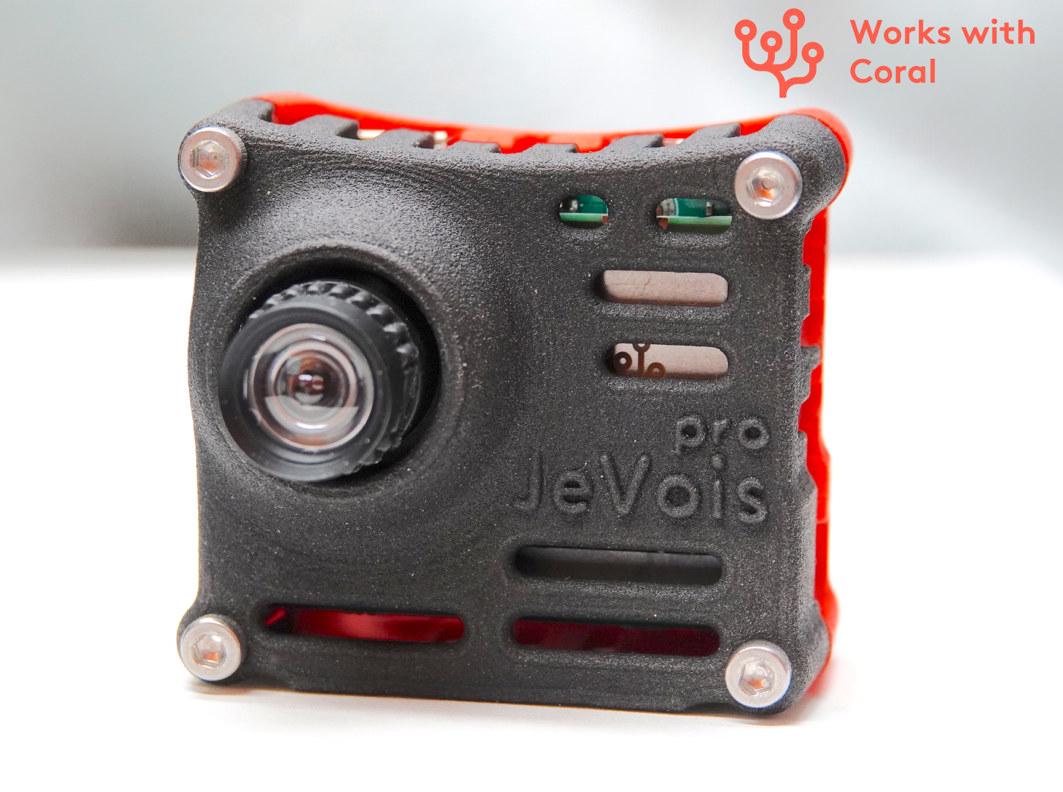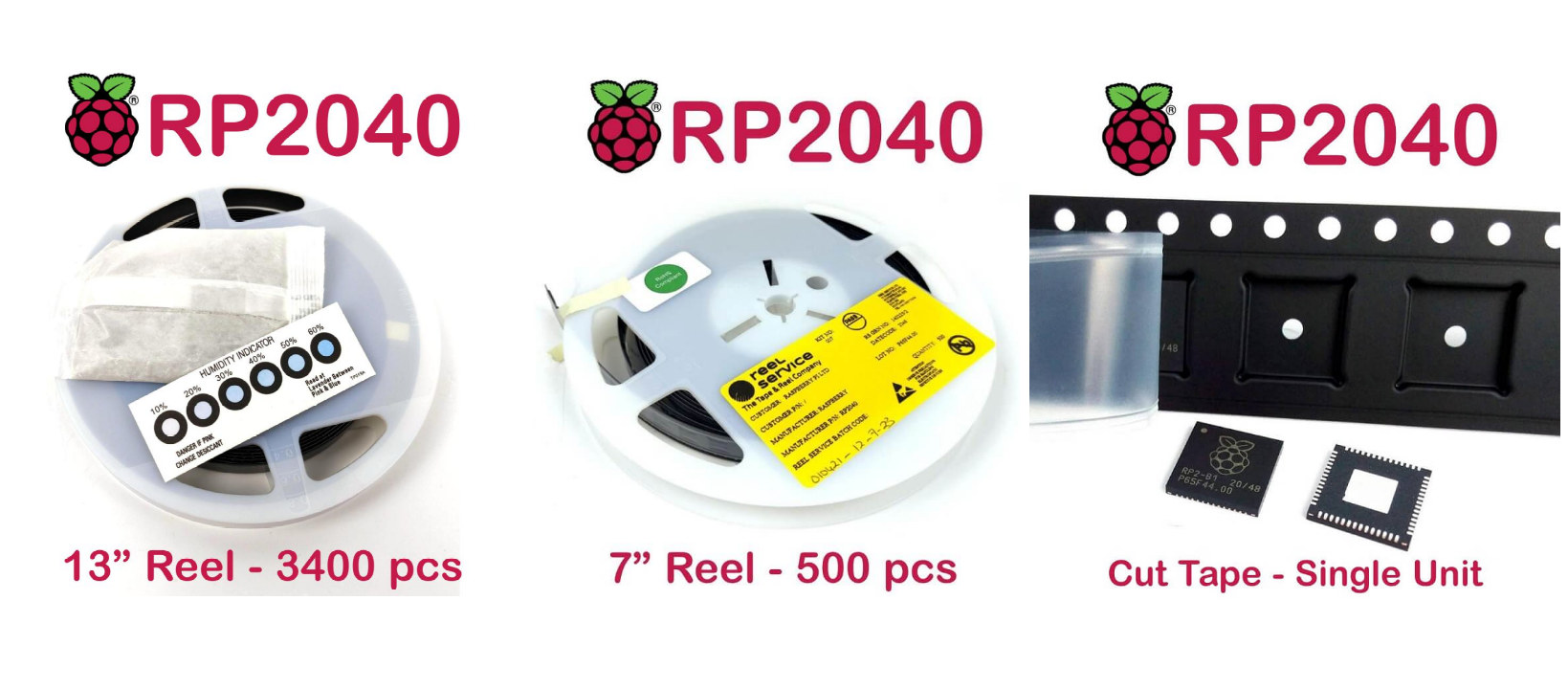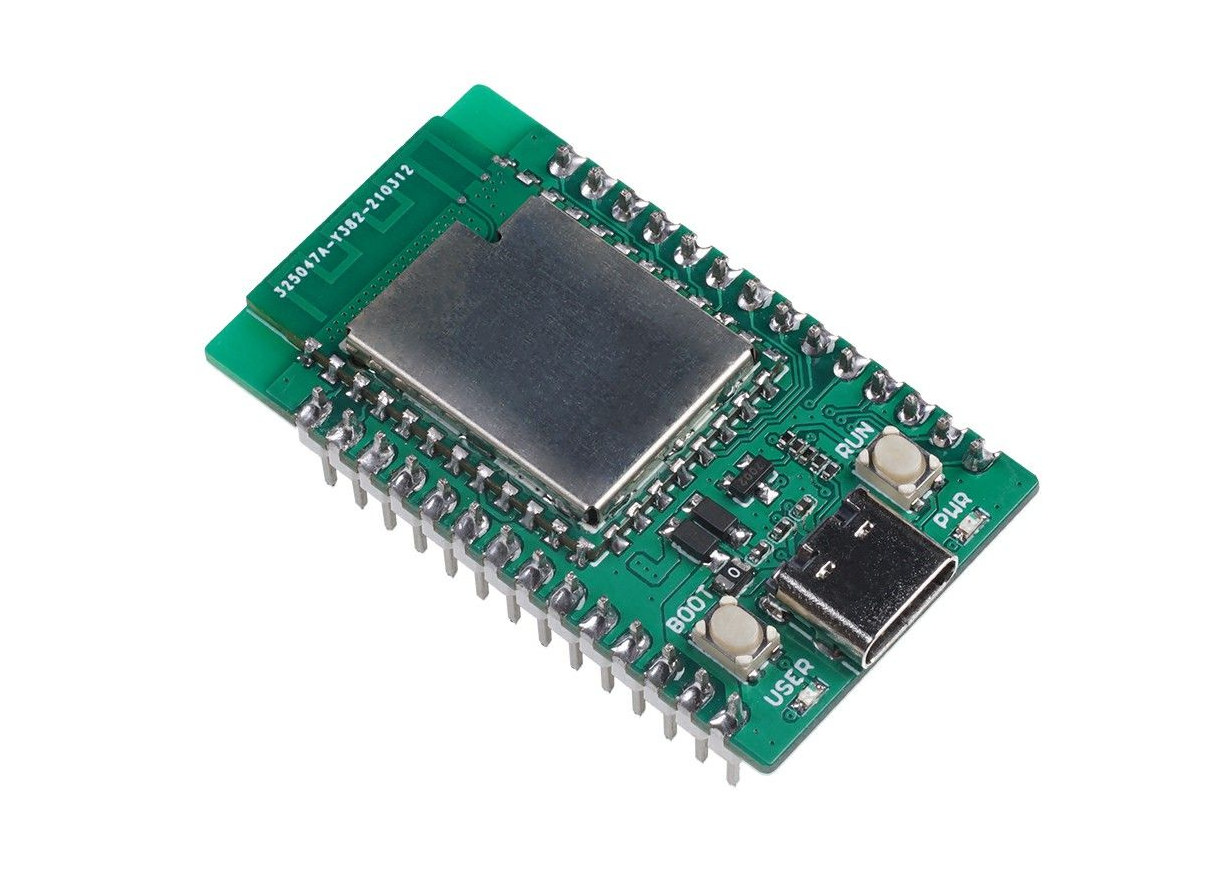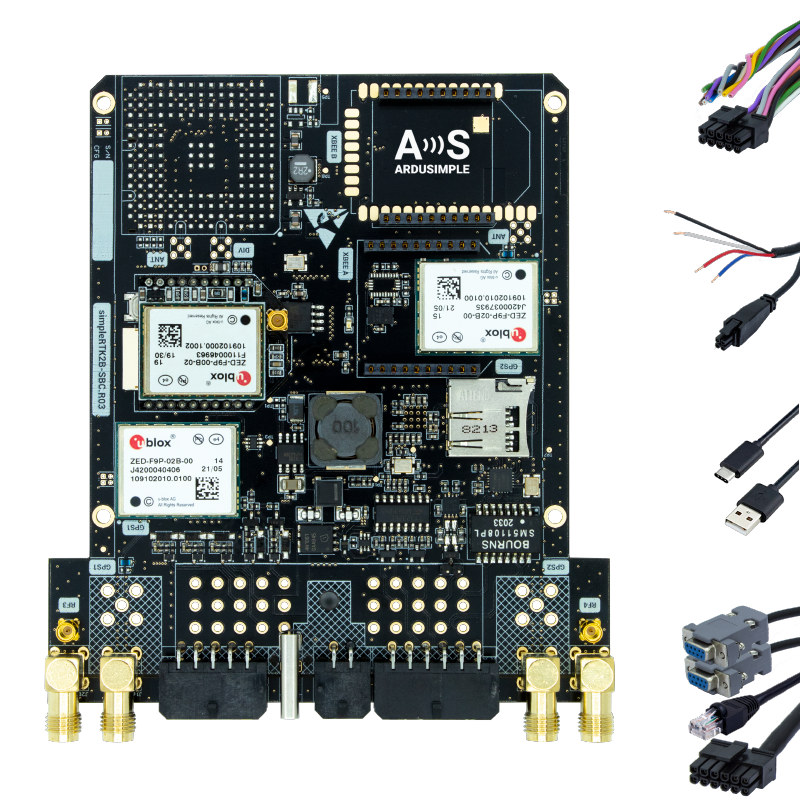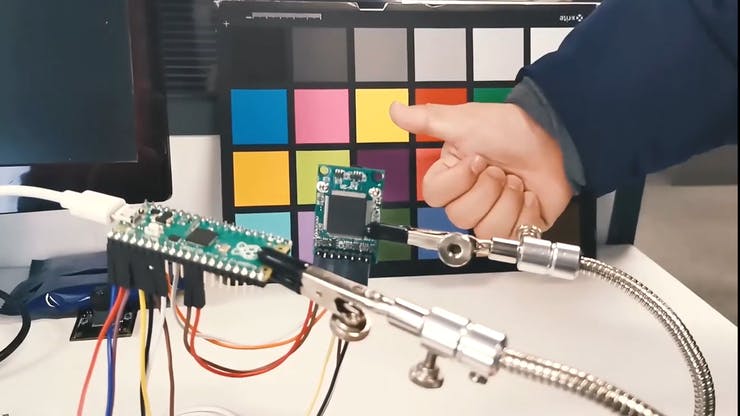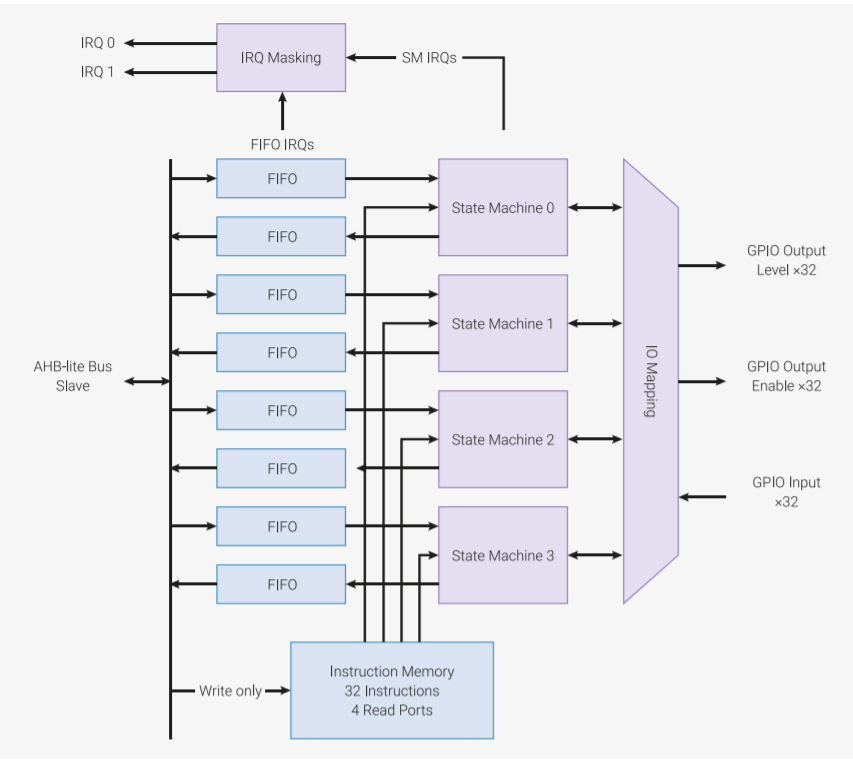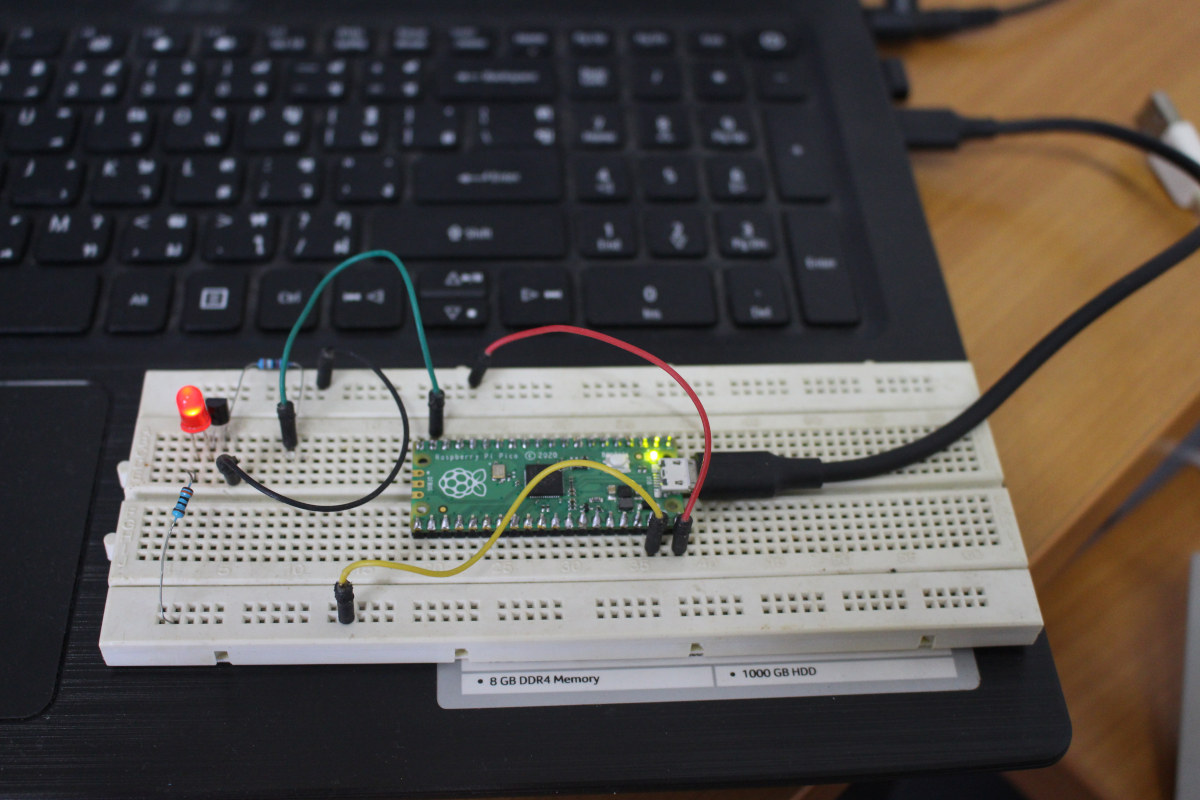As its name implies, LILYGO T-Display RP2040 is a Raspberry Pi RP2040 based development board that comes with a display, and more exactly a 1.14-inch color display with 240×135 resolution and based on ST7789V SPI display driver. The T-Display RP2040 board joins other Rasberry Pi RP2040 boards with integrated displays like Arducam Pico4ML, but does so at a much lower price with LILYGO selling the board for just $9.98 on Aliexpress. LilyGO T-Display RP2040 specifications: Microcontroller – Raspberry Pi RP2040 dual-core Cortex-M0+ MCU with 264 KB of embedded SRAM Storage – 4MB SPI flash Display – 1.14-inch full-color IPS LCD Display (ST7789V SPI controller) with 240 x 135 resolution Expansion – 15-pin + 12-pin expansion headers with 14x GPIOs, 6x PWMs, up to 2x UART, up to 2x I2C, up to 2x SPI, 2x programmable high-speed I/O, 5V, 3.3V, Vbat, and GND Misc – Boot & enable buttons, 2x user […]
Jevois Pro small AI camera with Amlogic A311D SoC offers up to 13 TOPS (Crowdfunding)
Jevois-A33 smart camera was a tiny Linux camera with Allwinner A33 processor designed for computer vision applications and announced in 2016. I had the opportunity to review the computer vision camera the following year, and it was fun to use to learn about computer vision with many examples, but since it relied on the CPU for processing, it would not have been suitable for all projects due to the lag, as for example, object detection took 500ms and Yolo V3 around 3 seconds per inference. But time has passed, and great progress has been made in the computer vision and AI fields with the tasks now usually handled by a built-in NPU, or an AI accelerator card. So JeVois Pro deep learning camera has just been launched with an Amlogic A311D processor featuring a 5 TOPS NPU, and support for up to 13 TOPS via a Myriad X or Google […]
You can now buy Raspberry Pi RP2040 MCU for one dollar
Raspberry Pi RP2040 microcontroller is not exactly new, as it was introduced with Raspberry Pi Pico board last January. But until now, you had to get samples from the Raspberry Pi Foundation due to limited supplies. What has changed today is that you can more easily buy Raspberry Pi RP2040 MCU for one dollar either in single quantity or reels with the following pricing: Reel/Tape with 3400 pcs for $3400 US Reel/Tape with 500 pcs for $500.00 US Raspberry Pi RP2040 cut tape (single unit): $1.00 US The math geniuses among us will have quickly figured out there isn’t any volume discount, so it’s one dollar per chip whether you buy one or thousands. [Update: See comment from Raspberry Pi Foundation below explaining pricing for reels is still to be determined] That’s about all there’s new. If you have not quite followed recent Pico news, here’s a summary of Raspberry […]
A compact Raspberry Pi RP2040 WiFi board – Meet $12.95 Wio RP2040 mini
Seeed Studio has launched another Raspberry Pi RP2040 WiFi board with the compact Wio RP2040 mini development board that provides a cheaper and more compact alternative to ESP32 based Pico Wireless carrier board and Arduino Nano RP2040 Connect, albeit at the cost of providing fewer I/O pins, and lacking Bluetooth LE. Wio RP2040 mini dev board specifications: MCU – Raspberry Pi RP2040 dual-core Cortex M0+ microcontroller up to 133 MHz with 264 kB of embedded SRAM Storage – 2MB QSPI Flash Memory WiFi – 2.4 GHz 802.11b/g/n WiFi 4 supporting AP & station modes USB – USB 1.1 Type-C host/device port for programming Expansion – 2x 14-pin headers with 20x multifunctional GPIO pins supporting PIO and PWM, 2x UART, 4x ADC, 2x SPI, 2x I2C. Misc – Boot & Reset(RUN) buttons, Power and user (GP13) LEDs Power Supply 5V via USB-C port(default) 3.6-5V via Vin header pin Dimensions – 45.5 […]
simpleRTK2B-SBC packs 3 u‑blox ZED-F9P RTK GNSS receivers for centimeter-level GPS positioning
Real-time Kinematic (RTK) relative positioning technique allows for 1-3cm positioning accuracy with data derived from satellite-based positioning systems such as GPS, BeiDou, GLONASS, Galileo, and NavIC. We’ve previously covered Skytraq PX1122R RTK GNSS module as well as SBG Systems Ellipse-D industrial-grade inertial navigation system featuring the technology, and now Spain-based ArduSimple has announced the simpleRTK2B-SBC single board computer that aims to “simplify the development of centimeter-level positioning solutions supporting real-time kinematics (RTK)” via up to three u‑blox ZED-F9P RTK GNSS receivers. simpleRTK2B-SBC board features & specifications: MCU – STMicro STM32F7 Cortex-M7 microcontroller GNSS Positioning 184-channel u-blox ZED-F9P engine Configuration options 2x ZED-F9P for position + heading 3x ZED-F9P for position + full attitude (roll, pitch, yaw) Navigation rate up to 20Hz Position accuracy down to 1 centimeter GPS: L1 & L2; GLONASS: L1OF & L2OF; Galileo: E1 & E5b; BeiDou: B2I & B2I; QZSS and SBAS Up to 4 integrated […]
Person Detection on Raspberry Pi Pico with ArduCAM and TensorFlow Lite
ArduCAM is popular for camera-based applications with various boards ranging from Arduino to Raspberry Pi. We also saw the company’s tiny coin-sized Raspberry Pi compatible module 5 years ago. Now, it also supports the newly launched Raspberry Pi Pico for real-time video applications. Raspberry Pi Pico is compatible with the ArduCAM Mini 2MP Plus camera featuring an OV2640 2MP CMOS image sensor that supports automatic image control functions including Automatic Exposure Control (AEC) and Automatic Gain Control(AGC). The camera also comes with an onboard JPEG encoder for image compression. The company has provided a Github repository with two demo applications: a video streaming application and an example for basic person detection with the probability percentage of detection. There is also an option of directly using the UF2 files for flashing with Raspberry Pi Pico, if you don’t want to build the demo from the source code yourself. The application runs […]
A closer look at Raspberry Pi RP2040 Programmable IOs (PIO)
The popularity of Raspberry Pico board powered by RP2040 microcontroller has made every reader wanting to know more about the board and chip. So today we will be talking about RP2040’s Programmable IOs, a feature that makes it different from most other microcontroller boards. The two PIO blocks or let’s call it the hardware interfaces in the RP2040 have four state machines each. These two PIO blocks can simultaneously execute programs to manipulate GPIOs and transfer raw data. Now, what do these state machines do? Well, the PIO state machines execute the programs fetched from various sources. Sometimes the programs are taken from the PIO library (UART, SPI, or I2C) or user software. Why Programmable I/O? All the boards usually come with hardware support for digital communications protocols such as I2C, SPI, and UART. However, if you plan to use more of these interfaces than what is available on the […]
Getting Started with Raspberry Pi Pico using MicroPython and C
Raspberry Pi Pico board was just launched last Thursday, but thanks to Cytron I received a sample a few hours after the announcement, and I’ve now had time to play with the board using MicroPython and C programming language. I went to the official documentation to get started, but I had to look around to achieve what I wanted to do, namely blinking some LEDs, so I’ll document my experience with my own getting started guide for Raspberry Pi Pico using a computer running Ubuntu 20.04 operating system. The instructions will be similar for Windows and Mac OS. Preparing the hardware In theory, we could just get started with the board alone, but since I got some headers with my board, I also took the opportunity to try out Pine64 Pinecil soldering iron powered by MINIX NEO P2 USB-C power supply. The soldering iron worked great for about one minute, […]


